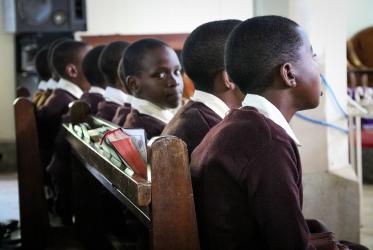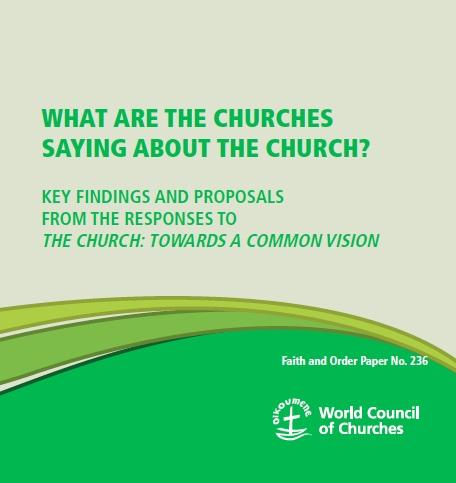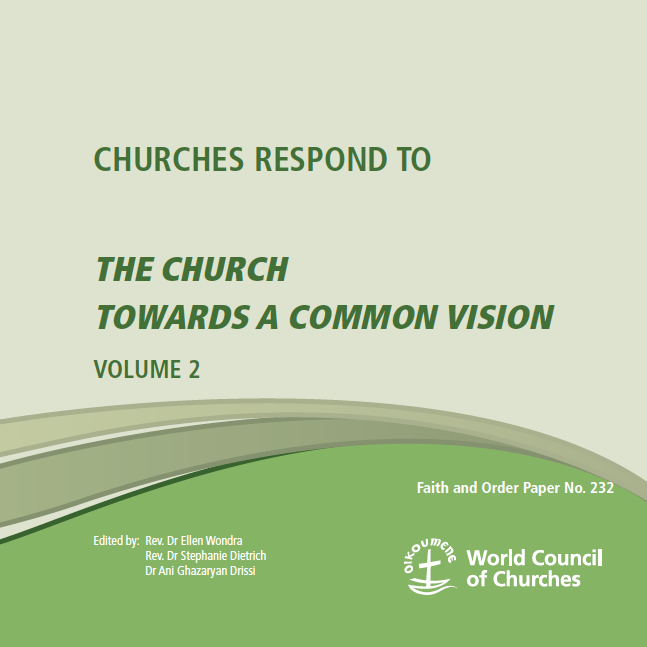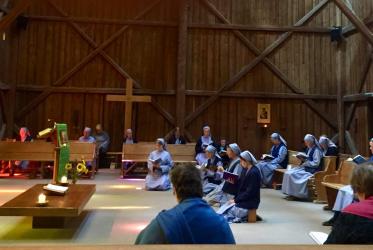Displaying 61 - 80 of 90
Churches offer some relief in Kenya’s drought disaster
16 September 2021
Walk the Talk
A Toolkit to Accompany the "Roadmap for Congregations, Communities and Churches for an Economy of Life and Ecological Justice"
31 August 2021
What Are the Churches Saying About the Church?
Key Findings and Proposals from the Responses to The Church: Towards a Common Vision
21 June 2021
Churches Respond To The Church: Towards A Common Vision Volume I
Faith and Order Paper No. 231
23 February 2021
Churches Respond To the Church: Towards a Common Vision Volume II
Faith and Order Paper No. 232
23 February 2021
WCC to host online prayer for Week of Prayer for Christian Unity
21 January 2021
Love and Witness
Proclaiming the Peace of the Lord Jesus Christ in a Religiously Plural World
18 January 2021
Praying for unity with the Sisters of Grandchamp in 2021
20 September 2019

















